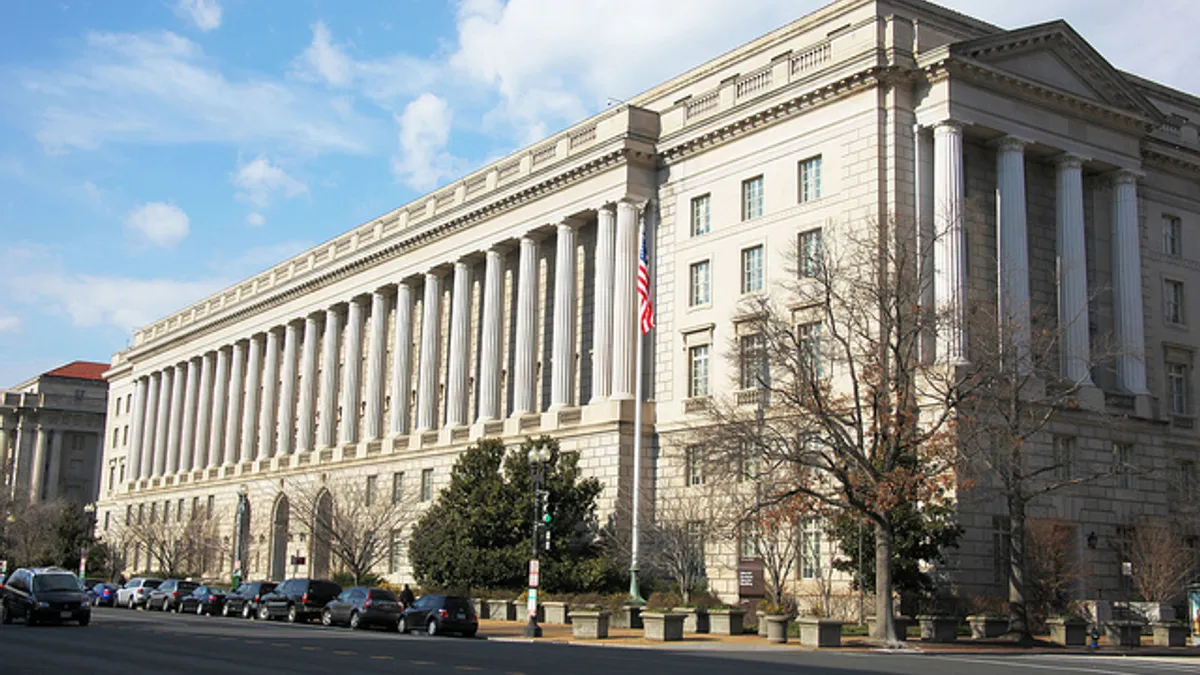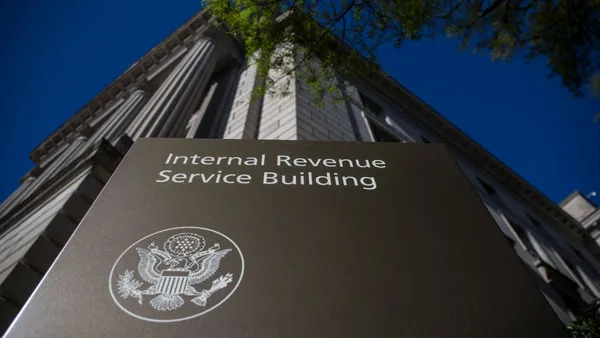Dive Brief:
- Businesses that received Paycheck Protection Program (PPP) loans are anxiously eyeing an IRS ruling that could affect whether they apply for loan forgiveness. In a notice this spring, the IRS said it had ruled out tax deductions for wages and rent paid with forgivable PPP loans in order to prevent a "double tax benefit."
- The ruling means contractors cannot write off these types of expenses if they were paid for with PPP loan funds, leaving many wondering whether it will cost more in taxes than to pay the loan back.
- According to the U.S. Chamber of Commerce, a forgiven PPP loan is tax-exempt but using the loan can also reduce how much a construction firm can write off on its business taxes. Usually, expenses like payroll, rent and utilities are deductible from normal taxable income, but without the deduction, a business may owe more taxes than it normally pays, the Chamber said.
Dive Insight:
Some elected leaders are pushing back on the IRS ruling. The Small Business Expense Protection Act introduced in the Senate in early May would reverse the IRS decision and make the expenses deductible. According to Forbes, there has been pushback on the legislation.
"Earlier this summer, the bill seemed likely to pass, but that is hardly certain now," Forbes contributor and tax expert Robert W. Wood wrote.
Joseph Natarelli, leader of the national Construction Industry Practice group at accounting firm Marcum LLP, said some contractors are unaware of the tax implications of PPP forgiveness on their businesses if the ruling is not reversed.
"Using simple numbers, the contractor who decided to borrow $9 million to keep their people employed is now going to owe," he said. "If you're in a 50% tax bracket, that's $4.5 million dollars, so where are you going to get that money from?"
Many of Natarelli's clients are considering not applying for PPP forgiveness in order to avoid a hefty tax bill, he said.
"They're saying, ‘If I knew then what I know now, then I wouldn't have taken the loan and I would have had to lay people off,'" he said.
The bottom line for contractors, Natarelli said, is to check with their accountants about tax implications before applying for loan forgiveness.
"It's an issue that contractors need to be aware of and I think people took PPP loans that don't even know it's taxable now, which is scary," he said.
















